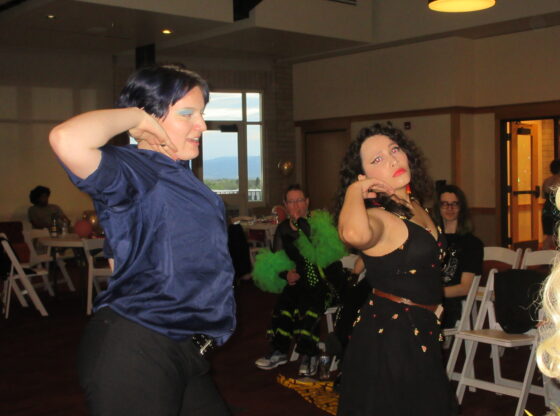Perhaps because it is the great American art form (for better or worse), the history of filmmaking is deeply rooted in white supremacy—much like the United States itself.
Even though the documentary marks cinema at its most nonfictional, it is still not wholly objective. The camera can only capture so much of its subject, and the process of editing leaves hours of footage on the cutting room floor. Influential documentaries as Robert J. Flaherty’s “Nanook of the North” (1922) are not immune from portraying nonwhite populations as less than human, paving the way for Nazi propaganda like Leni Riefenstahl’s “Triumph of the Will” (1935).
But Liz Garbus and Lisa Cortés’s “All In: The Fight for Democracy” (2020) is as cinematically revolutionary as it is politically progressive. Its distributor, Amazon Studios, streamed their manifesto against voter suppression for free Tuesday, Sept. 22, as part of Voter Registration Day. Stacey Abrams, whose 2018 gubernatorial campaign in Georgia provides the narrative through-line for the film, hosted a watch party on Twitter with Lin-Manuel Miranda.
As for the film’s place in movie history, not only is it representationally intersectional, it is almost postmodernist in its self-awareness of how it rewrites the rules of Hollywood. To be sure, “All In” namedrops D.W. Griffith’s “The Birth of a Nation” (1915), a Ku Klux Klan recruitment tool arguably responsible for movie-making grammar as we know it today. Explicitly, the filmmakers call out “The Birth of a Nation” for directly inspiring KKK violence against Black Americans at the polls. Implicitly, though, this story of a Black woman running for the governor’s office (and advocating against the voter suppression that cost her the election) comes a long way from “The Birth of a Nation.”
Ava DuVernay’s “Selma” (2014) is another film waiting to be read between the lines of “All In.” While Garbus and Cortés address the 1965 Selma to Montgomery marches for voting rights and not the film dramatizing them, they still owe a debt to DuVernay. This isn’t just because she is a woman of color sitting in the director’s chair. DuVernay’s biopic is at the forefront of the current trend to depict one moment in a historical figure’s life rather than recreating their entire life.
It reminds one of a portraitist painting around a focal point. “All In” centers itself around Abrams’s electoral bid, while at the same time documenting the broader issue of voter suppression in the United States.
Miranda’s endorsement of the film proves to be significant because of his own cinematic activism. When Disney+ uploaded Thomas Kail’s “Hamilton” (2020) in July, a live stage recording of Miranda’s 2015 Broadway musical of the same name, the viewership surpassed anything on Netflix that month. Miranda’s efforts to reimagine American history as Black history were primed to be released during the Black Lives Matter movement.
With “All In” under its belt, Amazon may have a foothold at the next Academy Awards alongside Lana Wilson’s Netflix doc, “Miss Americana” (2020). If this year’s Oscars were any indication, however, Garbus and Cortés are poised to outperform their competitor. Make no mistake, the Trump Administration’s war on mail-in ballots is the face of post-Obama voter suppression. As the wave of racist backlash against the BLM movement crests as high as the Oval Office itself, “All In” will only grow more essential by the hour until Tuesday, Nov. 3.
And such self-perpetuating immortality is filmmaking at its finest.











